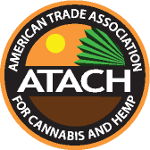Vermont
- Overview of Cannabis and Hemp Laws
Cannabis:
- Recreational Use: Legalized in 2018 under Vermont Act 86, allowing adults to possess and cultivate small amounts for personal use.
- Medical Use: Legal since 2004 under Senate Bill 76, providing qualifying patients access to medical cannabis, regulated by the Vermont Department of Public Safety.
Hemp Intoxicants and Synthetic THC: Vermont regulates hemp intoxicants under the same framework as cannabis products, applying similar standards to both.
- Historical Context
- 2004: Vermont legalizes medical cannabis, joining early states with limited medical access.
- 2018: Vermont becomes the first state to legalize recreational cannabis through legislation (Act 86), initially permitting possession and cultivation without retail sales.
- 2020: Vermont begins permitting retail cannabis sales, integrating hemp intoxicants under its cannabis regulatory framework.
- Recreational Cannabis Laws
- Possession Limits: Adults 21 and older may possess up to 1 ounce of cannabis and grow up to two mature plants and four immature plants for personal use.
- Cultivation: Allowed for personal use with a household limit of two mature plants and four immature plants.
- Public Use: Public consumption is prohibited; use is restricted to private residences.
- Sale and Retail: Retail sales were authorized starting in 2020, with licensed dispensaries regulated by the Cannabis Control Board to ensure compliance.
- Medical Cannabis Laws
- Patient Eligibility: Qualifying conditions include cancer, chronic pain, and multiple sclerosis. Patients may apply for a medical card through the Vermont Marijuana Registry.
- Product Access: Licensed dispensaries offer a variety of cannabis products, including oils, capsules, and tinctures.
- Program Details: Patients may access cannabis through dispensaries or cultivate within legal limits if they choose not to use dispensaries.
- Hemp-Derived Intoxicants
- Regulatory Status: Vermont integrates hemp-derived intoxicants into its cannabis regulatory framework, treating them as cannabis products.
- Testing and Labeling: Rigorous testing is required for potency and contaminants, with labeling indicating cannabinoid content and usage warnings.
- Age and Retail Restrictions: Sales are restricted to individuals 21 and older, and products are available exclusively at licensed dispensaries.
- Criminal Penalties for Cannabis Offenses
- Possession: Possessing more than 1 ounce without a medical card may result in fines or, for larger amounts, incarceration.
- Sale and Distribution: Unauthorized sale or distribution, particularly to minors, can lead to felony charges and severe penalties.
- Trafficking and Cultivation: Unauthorized large-scale cultivation or trafficking incurs serious penalties, including substantial fines and prison terms.
- Social Equity Programs
- Eligibility Criteria: Vermont’s social equity program supports individuals from communities disproportionately impacted by past cannabis laws.
- Licensing Benefits: Social equity applicants may qualify for reduced fees, expedited licensing, and technical assistance.
- Additional Support: Vermont provides business development support and training to promote equitable participation in the cannabis industry.
- Business Types and Operations
- Licensing Types: Vermont licenses businesses for cultivation, processing, and retail, with a separate category for medical-only dispensaries.
- Regulatory Requirements: All licensed businesses must comply with state standards on security, product tracking, record-keeping, and health and safety regulations.
